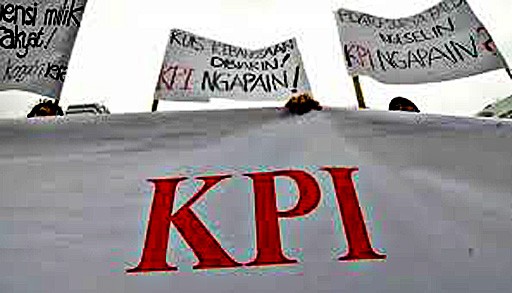Popular Reads
Top Results
Can't find what you're looking for?
View all search resultsPopular Reads
Top Results
Can't find what you're looking for?
View all search resultsLegislator says stations may find it hard to extend TV permits
Change text size
Gift Premium Articles
to Anyone
T
antowi Yahya, a legislator from House Commission I overseeing defense, foreign affairs and information, said on Friday that television networks found to frequently violate the Indonesian Broadcasting Commission’s (KPI) regulation on broadcasting program standards might find it hard to extend their 10-year broadcast permits.
Tantowi was responding to the broadcasting commission’s plan to evaluate 10 television networks whose permits are set to expire this year.
Nine television stations, namely ANTV, Global TV, Indosiar, MNCTV, RCTI, SCTV, Trans TV, TV7 and TV One, will see their permits expire in October, while Metro TV will have to renew its permit in December.
It is reported that the KPI will first evaluate the television stations before it recommends to the government whether or not their permits ought to be extended.
“According to the 2002 Broadcasting Law, it is mandatory for the government to take notice of KPI recommendations,” said Tantowi.
The KPI imposed 266 sanctions on several Indonesian television networks in 2015, with sanction categories ranging from child and adolescent protection, courtesy and morality, and journalism ethics violations. The figure was higher than last year, which saw the KPK impose 184 sanctions.
“Everything is already stated in the Broadcasting Code of Conduct and Program Standards [P3SPS]. It is clear enough to determine whether or not a program violates the rules,” said Tantowi.
The KPI will look at three main factors in evaluating the television stations, namely their adherence to the P3SPS, their broadcasting program proposals for the next 10 years and their implementation of the Network Broadcast System.
In January, the KPI carried out for the first time a public test to involve the public in the evaluation process.
KPI commissioner Amirudin said the commission received around 5,000 responses from individuals, NGOs, foundations and educational institutions.
“We want to look at public input for the improvement of broadcasting programs in the future,” said Amirudin on Saturday.
“We hope this permit extension process can become a chance for television stations to improve programs and their content.”
Separately, television watchdog Remotivi deplored the KPI’s lack of transparency, saying the commission must reveal the results of the public test.
“There will be another evaluation stage after a hearing conducted with representatives from television stations, the KPI, and also the public. Thus, it is unlikely that the public test will deliver a big impact, although there are lots of complaints about broadcasting content,” Remotivi researcher Wisnu Prasetya Utomo said on Friday. (vps/ebf)










